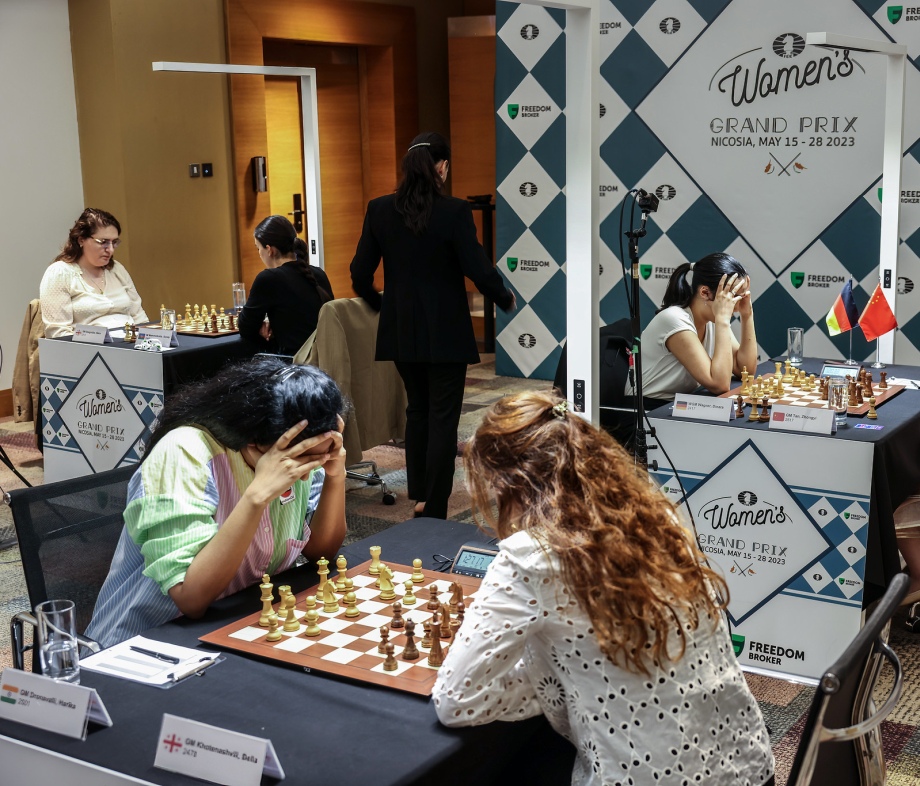“At some point, you really start to appreciate the journey more than the result.” – Alexandra Kostenuk
The FIDE Women's Grand Prix began in 2009-2011 as a series of six chess tournaments exclusively for women, forming part of the qualification cycle for the 2011 Women’s World Chess Championship. Subsequent Women’s Grand Prix series were held in 2011-2012 and 2013-2014.
Chinese star GM Hou Yifan, currently number one on the FIDE Women’s rating list, emerged as the overall winner of all three of these Grand Prix: an outstanding performance. By withdrawing after the first tournament, Hou Yifan paved the way for her compatriot GM Ju Wenjun to win the 2015-2016 Grand Prix, overtaking Humpy Koneru in the final event.
The fifth edition of the Women’s Grand Prix, consisting of four events during 2019-2021, was dominated by GM Aleksandra Goryachkina, who will definitely be looking to repeat her success this year.
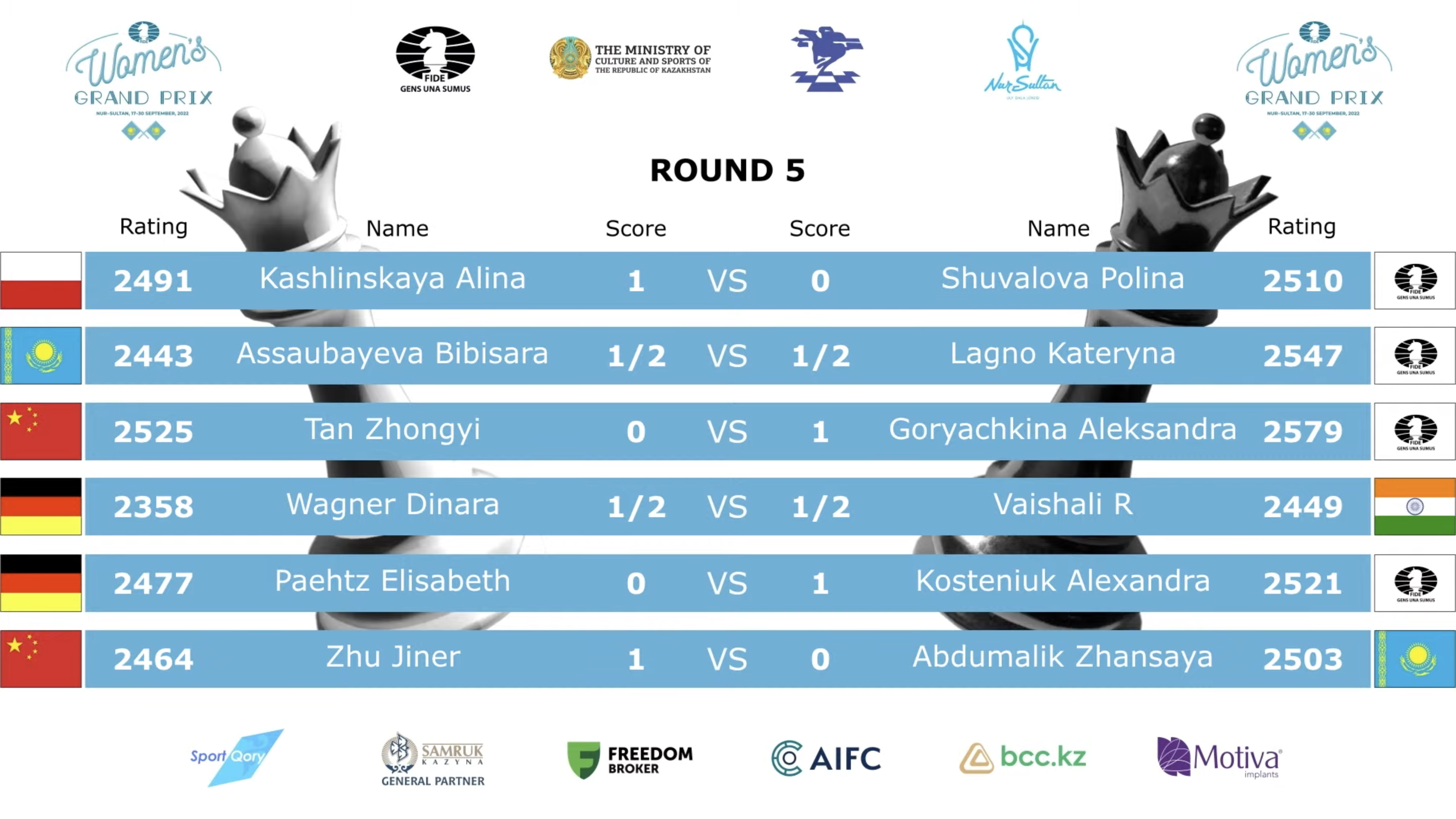
After the first five rounds, Goryachkina leads the event with one full point over the rest of the field. However, she is not alone. Zhu Jiner, a mostly unknown Chinese youth, is also performing wonderfully, tied for first with 4/5.
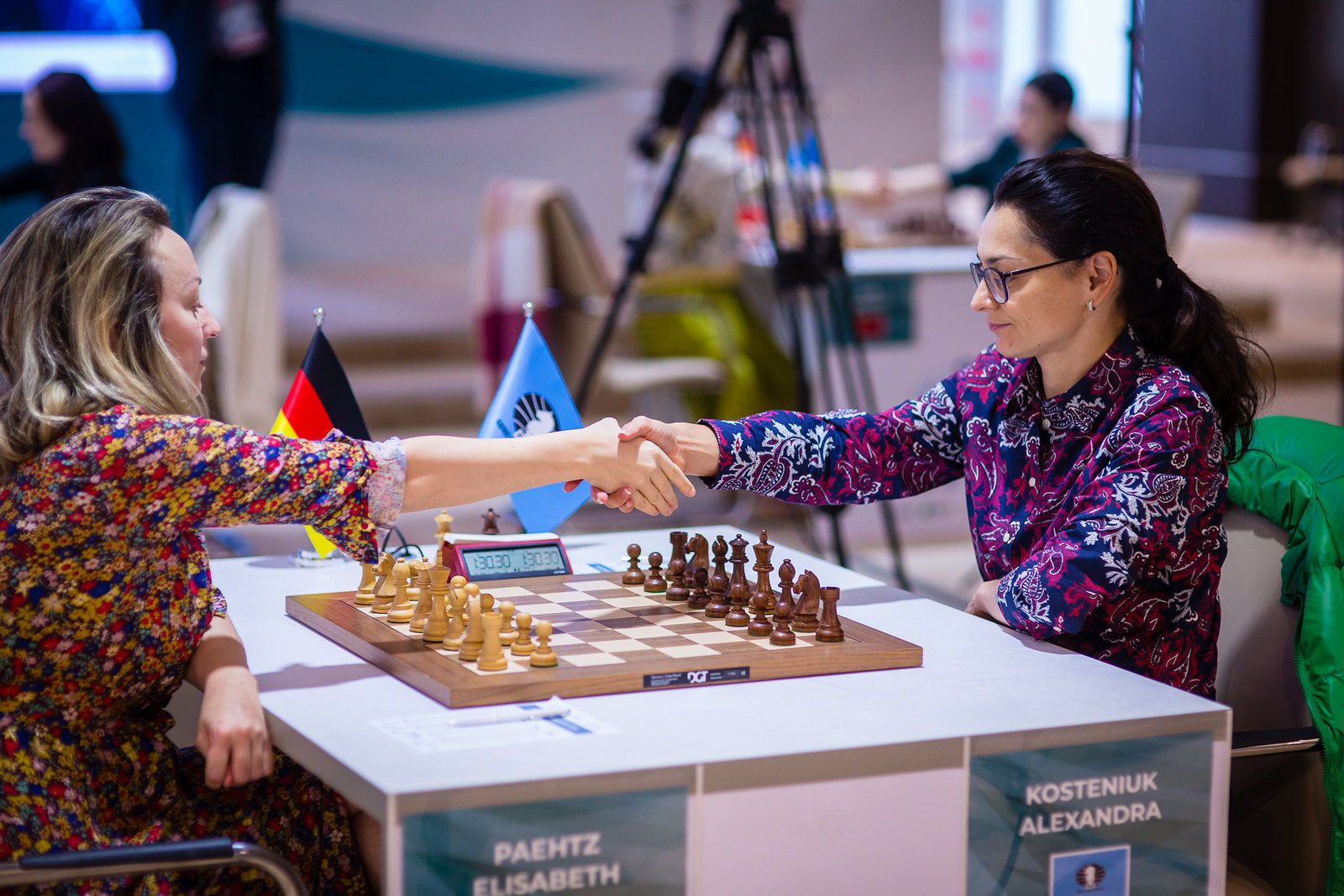
Paehtz, Elisabeth - Kosteniuk, Alexandra (0-1)
Elisabeth and Alexandra have a huge playing history together and, from what I gather at the start of the rounds, seem to be on very good terms. In my database, I have computed no less than seventy games (under different time controls): the first of them in the 1994 European Under 10 Girls Championship. Quite unbelievable!
If we consider their results in classical chess, Kosteniuk has won most of their recent encounters, totalling 11.5-8.5 but, notwithstanding, definitely a tough match-up.
For today’s game, Paehtz chose a rare side-line ( 8.Bd2) in the Closed d3 Ruy Lopez Opening, trying to surprise her opponent, but Kosteniuk came very well-prepared and equalised effortlessly. The game remained more or less balanced for the first thirty moves.
Just when the game seemed to be heading towards a draw, although Kosteniuk did have a small edge, fate struck for Germany’s number one women player: she blundered a back-rank mate and had to resign.
Although in the middle of a roller-coaster event, Alexandra was kind enough to drop in to the press centre and share her thoughts with FIDE Press Officer IM Michael Rahal. You can watch the interview here.
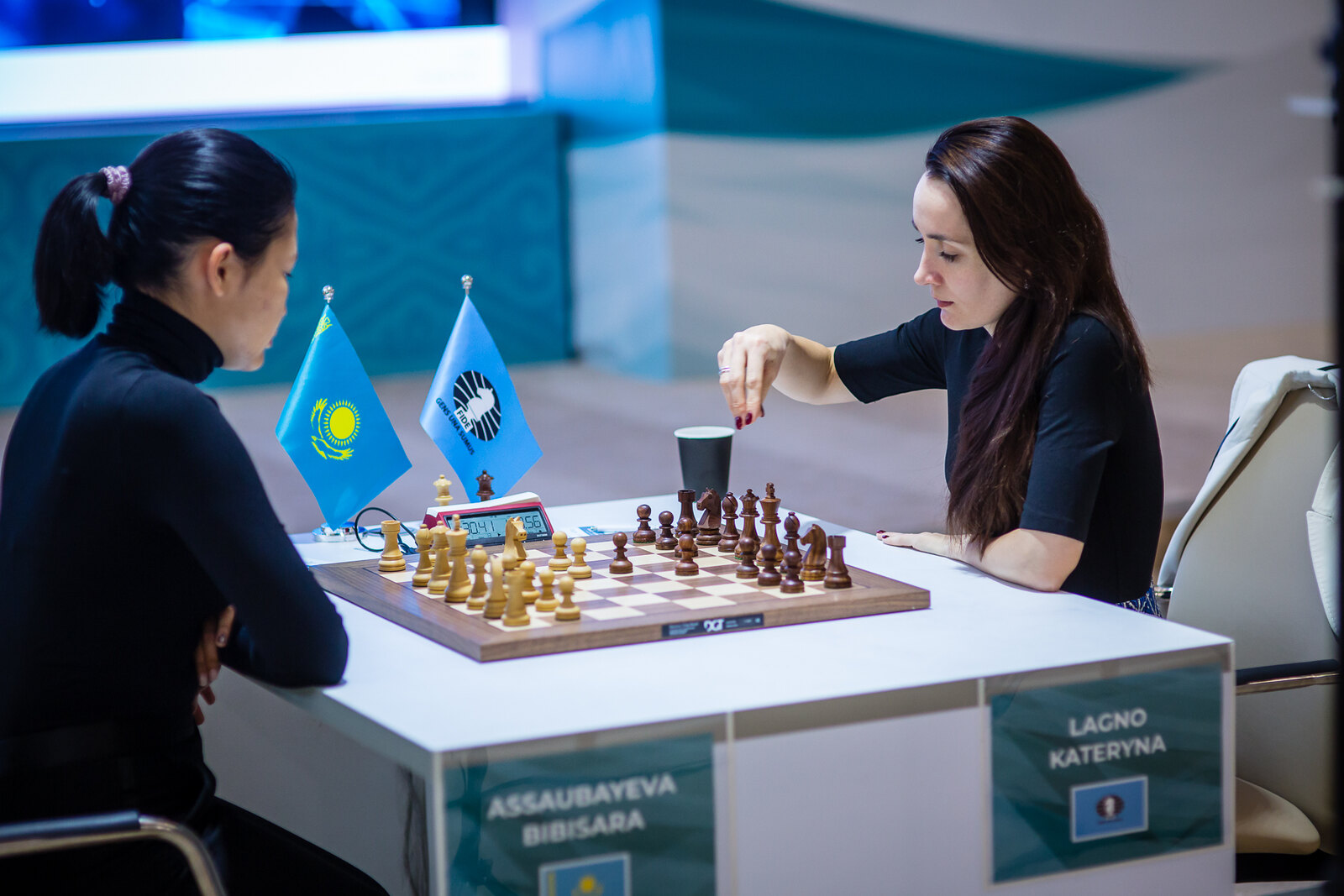
Assaubayeva, Bibisara - Lagno, Kateryna (0.5-0.5)
Lagno and Assaubayeva have battled it out in many blitz and rapid games over the past few years but had only faced each other in classical chess in the 2021 FIDE World Cup, where Lagno eliminated her opponent by 2.5-1.5.
Kazakh number two women player opted for 1.d4 this afternoon and Lagno chose the Tarrasch variation in the Queen’s Gambit declined. As she mentioned later on, she thought that her opponent didn’t really know what to do.
After twenty moves the position was about equal: a typical middlegame with an isolated d-pawn for Black but with opposite-coloured bishops to go with the heavy pieces.
As Lagno recalled in the post-game interview, she clearly had in mind one of the famous Karpov-Kasparov games, in which the pawn structure and piece distribution was analogous – Karpov won that game with White.
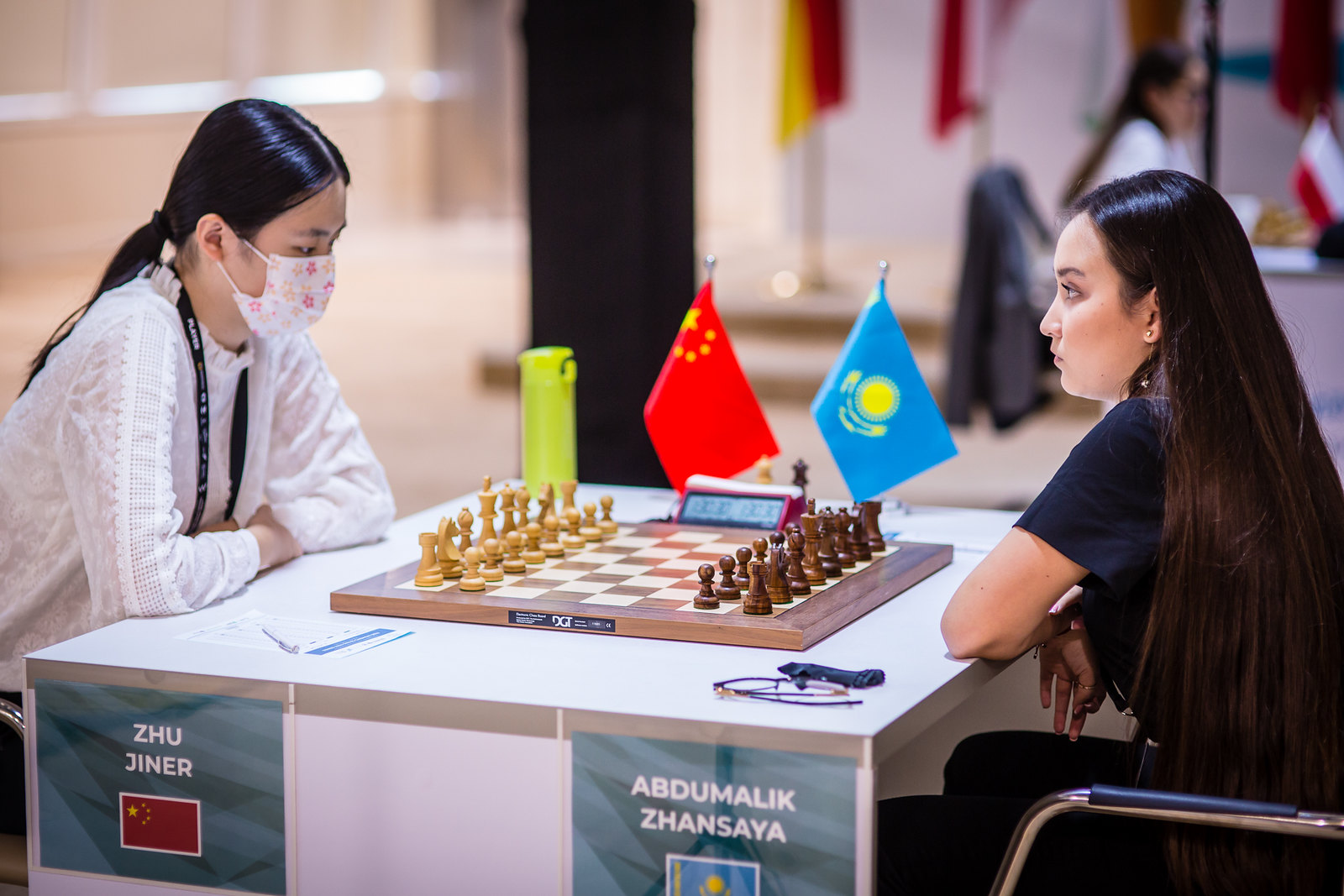
Zhu, Jiner - Abdumalik, Zhansaya (1-0)
Zhu Jiner and Zhansaya Abdumalik have never faced each other in classical chess; in fact, they had only played two rapid games before. For today’s encounter, Abdumalik chose the popular Sicilian Sveshnikov, a double-edged weapon, in search of sharp play with the black pieces.
Zhu Jiner played cautiously, following Caruana’s 7.Nd5 main line, used in the World Championship match against Carlsen. Abdumalik launched an attack with her pawns on the kingside, while Zhu Jiner corresponded on the queenside.
It’s always hard to speculate where a certain player might have made a fatal mistake, but in her post-game interview Zhu Jiner mentions 27…Bg3+? – instead 27…Bxe1 is much better – as the moment where Abdumalik loses track, reaching a lost position.
With this victory, Zhu Jiner leads the event with 4/5 tied with Goryachkina.
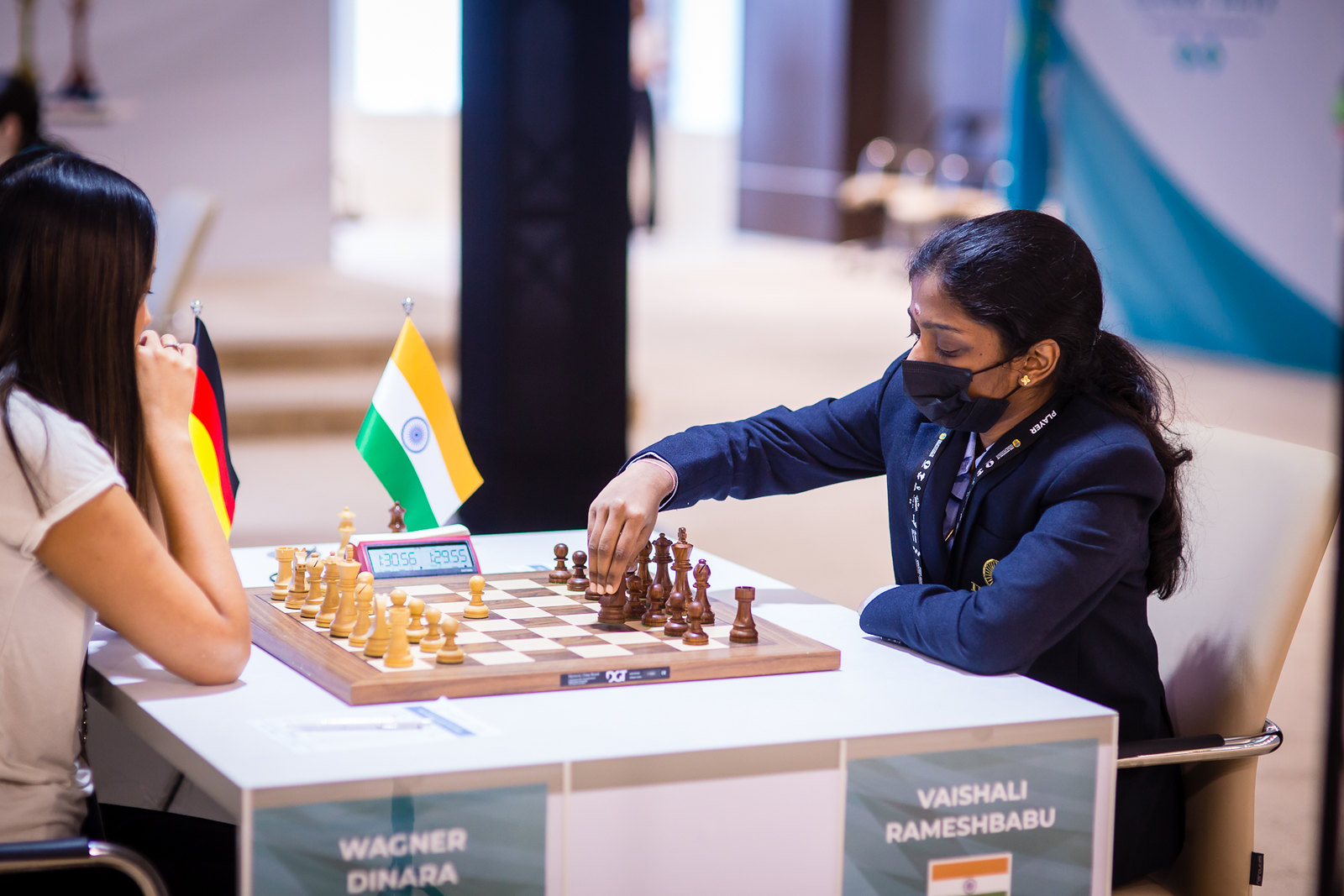
Wagner, Dinara - Vaishali, Rameshbabu (0.5-0.5)
Based on the Mega Chess Database, Wagner and Vaishali have only faced each other on one occasion before, namely in the 2016 World Under20 Girls Championship. On that occasion Vaishali emerged victorious. Of course, that was many years ago and it has rained a lot since then.
Wagner is definitely on a roll in the last couple of games and today it didn’t seem that she was thinking of slowing down. Playing with Black, Vaishali made some inaccuracies in the Catalan Opening and soon found herself a pawn down with meagre compensation.
Both 20.Nxf7 and 20.0-0 were probably better options for Wagner, whose advantage slowly dwindled to a point where the computer was already indicating equality: White did have an extra pawn, but a weak king and too many weaknesses. A draw was soon agreed.
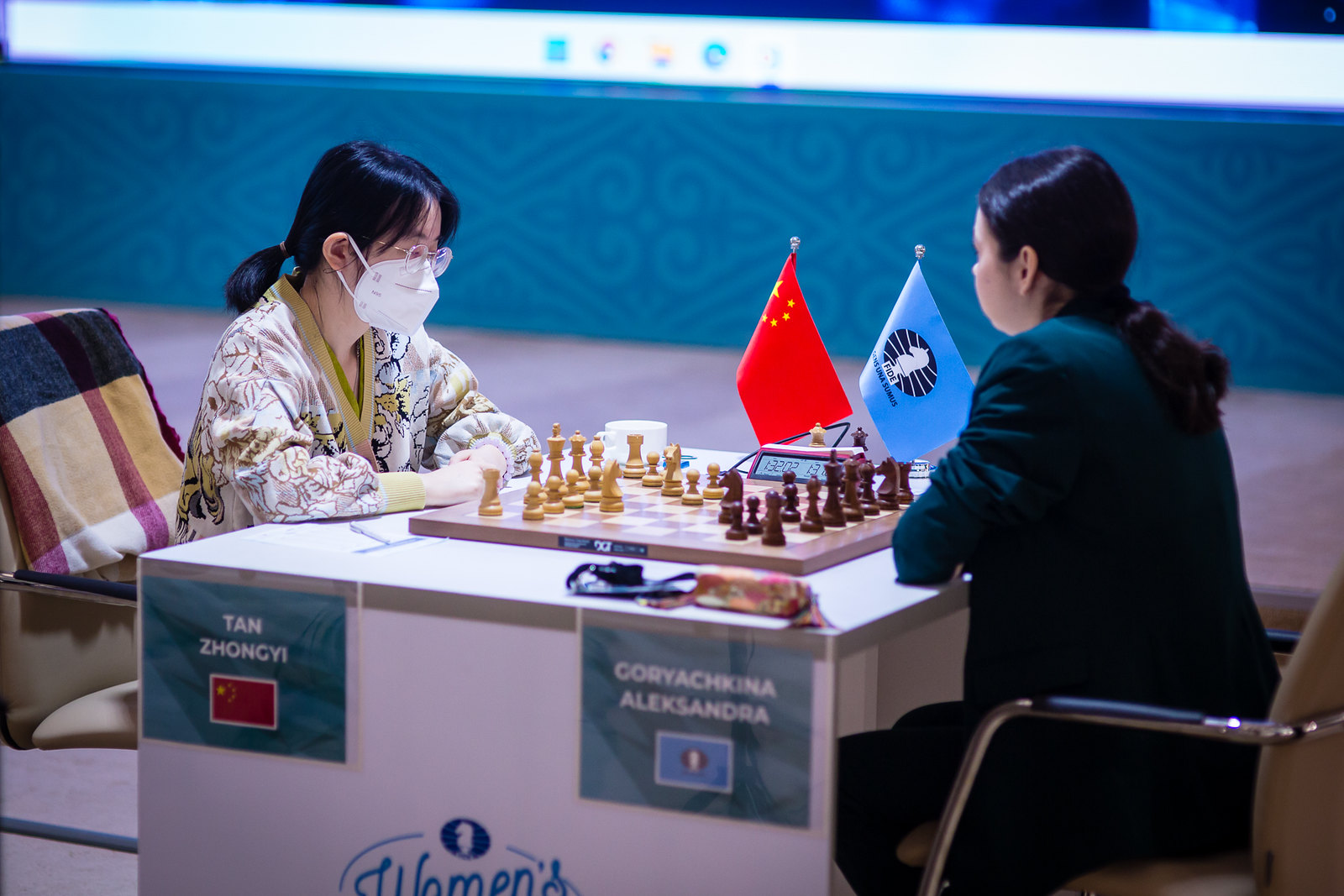
Tan, Zhongyi - Goryachkina, Aleksandra (0-1)
The Chinese player has traditionally been a tough opponent for Goryachkina: 3-2 for Tan Zhongyi in classical games. However, Goryachkina did defeat her in the 2019 Women’s Candidates Tournament, which allowed her to fight for the 2020 World Championship against her compatriot, GM Ju Wenjun.
In this afternoon’s game, Goryachkina repeated the same Slav variation that brought her success in the third round against Kashlinskaya. Tan Zhongyi might have missed a chance to press with 24.Rad1 instead of 24.b6 but all in all the game was equal for the most part.
Just when the game seemed to be heading for a draw, Tan Zhongyi miscalculated a pawn breakthrough in the ending and was suddenly worse, close to losing. Goryachkina’s killer instinct did the rest, and she finishes the day tied for first place in the lead with Zhu Jiner.
Here you can watch an interview with Aleksandra Goryachkina (in Russian with English subs)
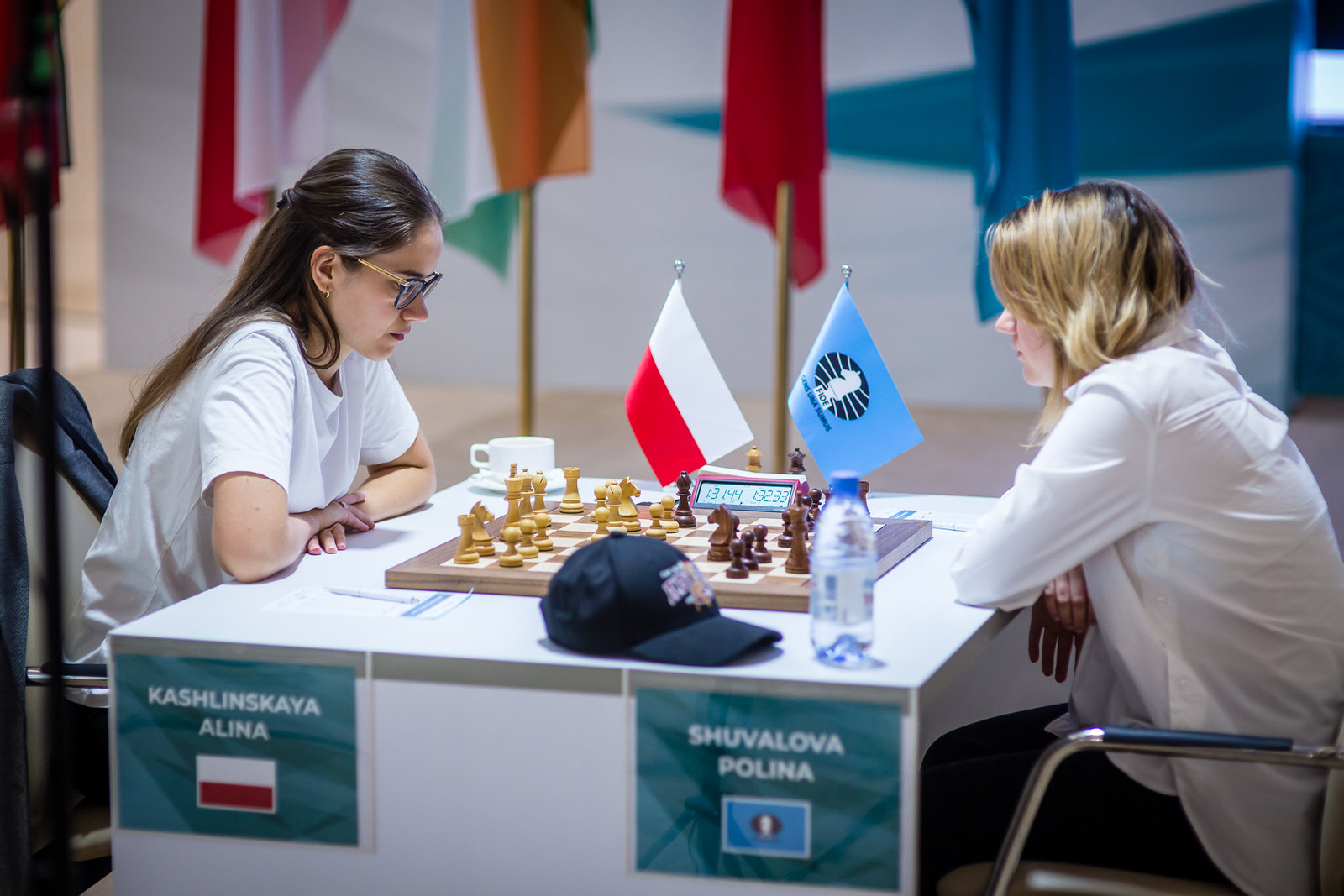
Kashlinskaya, Alina - Shuvalova, Polina (1-0)
In past encounters, and obviously excluding blitz and rapid games, Shuvalova had edged out Kashkinkaya in classical chess by a very narrow 3.5-2.5 margin, although funnily enough most of the wins for both players came with the black pieces.
Today she went for the classical Nimzo-Indian defence: White’s huge centre and bishop pair against Black’s superior pawn structure and long-term chances. With the interesting move 15.c5, Kashlinskaya sacrificed a pawn for very good positional counterplay.
However, Shuvalova defended finely and soon after she had consolidated her extra pawn and was already pushing for the win. Already under pressure on the queenside, Kashlinskaya went all-in with a timely 55.f4! pawn break on the kingside, very willing to sacrifice a piece for the attack.
Huge complications ensured, but Kashlinskaya came out on top, scoring a very important win that allows her to share third place in the standings. Having missed her chance, Shuvalova is currently last, but playing very sharp chess: she will definitely have new opportunities in the second half of the tournament.
Interview with Alina Kashlinskaya.
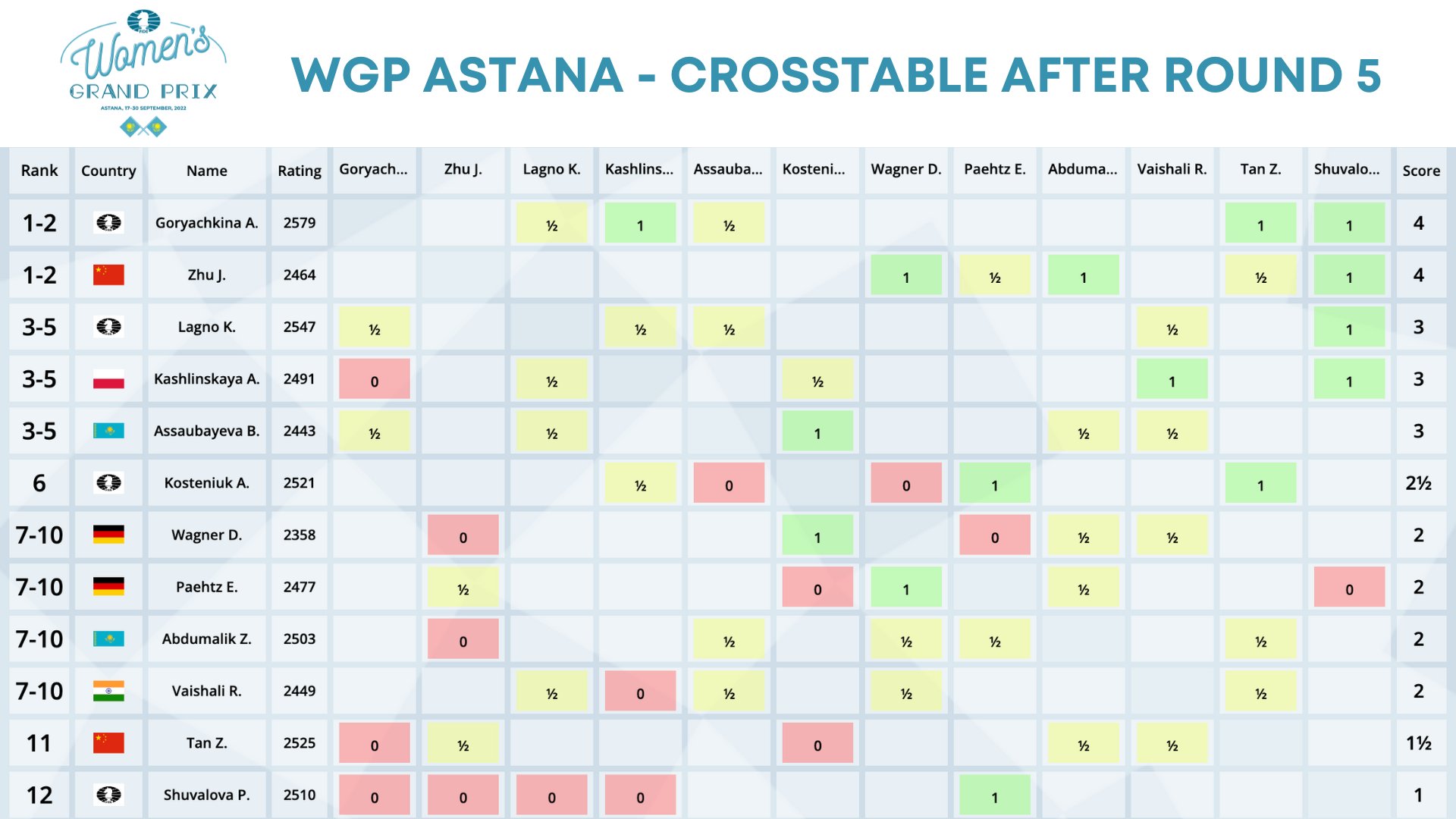
Round 6 pairings:
Round 6 | Astana | 23.09.2022
Shuvalova, Polina — Abdumalik, Zhansaya
Kosteniuk, Alexandra — Zhu, Jiner
Vaishali, Rameshbabu — Paehtz, Elisabeth
Goryachkina, Aleksandra — Wagner, Dinara
Lagno, Kateryna — Tan, Zhongyi
Kashlinskaya, Alina — Assaubayeva, Bibisara
Text and interviews: IM Michael Rahal, FIDE Press Officer, Astana
Photos: Anna Shtourman
Official website: womengrandprix.fide.com/





